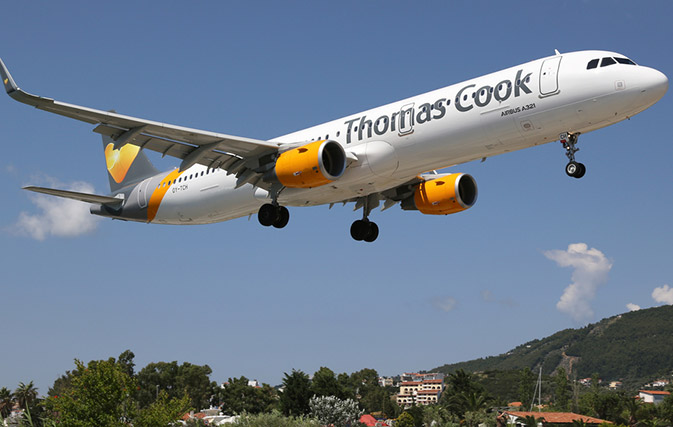MONTREAL — Transat A.T. has signed a seven-year agreement with Thomas Cook Group Airlines for the exchange of aircraft on a seasonal basis.
As per the agreement, Thomas Cook will make available every winter to Air Transat a number of narrow body Airbus A321s and will receive at least one wide-body Airbus A330-200 in return. This will allow both companies to manage their fleet more efficiently.
The agreement takes advantage of the different seasonality of the two companies: Air Transat uses a greater number of smaller aircraft in winter to serve its destinations in the Caribbean, Mexico and Florida, and larger aircraft in summer to serve the transatlantic market. In contrast, Thomas Cook uses smaller aircraft in summertime to fly to destinations around the Mediterranean Sea, and larger wide-body aircraft in the winter to fly to long-haul destinations like Cuba and the Dominican Republic.
In the past few years, Air Transat has implemented a flexible-fleet model, through agreements with various carriers. This allows the company each winter to increase the number of narrow-body aircraft it operates, and to reduce the number of wide-body aircraft. For example, in winter 2016-2017, Air Transat operated 20 narrow-body aircraft (Boeing 737) and 12 wide-body aircraft (Airbus A310 and A330), while in summer 2017 it used seven narrow-body aircraft and 25 wide-body aircraft.
“This agreement marks a new step in the reconfiguration of our fleet,” said Jean-Marc Eustache, President and Chief Executive Officer of Transat. “It allows us to improve our flexible-fleet model, making it even more efficient. Our fleet will eventually consist solely of Airbus A330 and aircraft from the A320 family, such as the A321, which will mean a more harmonized travel experience for our customers as well as lower operating costs.”
From Thomas Cook, Chief Airline Officer Christoph Debus added: “The new partnership provides additional growth opportunities for our airline, and again demonstrates how Thomas Cook Group is transforming through partnerships. By taking advantage of the complementary seasonal demand in North America and Europe, we will be able to operate additional long-haul flights during winter and better balance the seasonal demand for our short and medium-haul aircraft, resulting in more cost efficiency and choice for our customers.”

